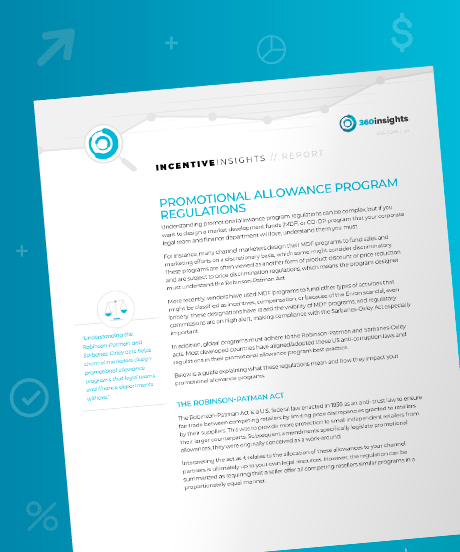Compliance refers to the process of ensuring that an individual, organization, or system adheres to established laws, regulations, standards, or ethical practices.
This involves:
- Monitoring and understanding applicable legal or regulatory requirements
- Creating policies, procedures, and training to meet regulatory standards
- Performing regular audits and risk assessments to maintain adherence
- Addressing and resolving any non-compliance issues promptly
In practice, compliance ensures that businesses operate within legal boundaries, fostering trust among customers, stakeholders, and regulatory bodies. Proper compliance ensures reduced risks from fines, legal disputes, and damage to reputation.
Compliance is essential as it not only safeguards an organization from potential penalties but also promotes operational integrity, builds public confidence, and supports long-term sustainability.
Setting Your Program up for Success from the Start

eBook
Promotional Allowance Program Regulations
When designing a market development funds (MDF) or CO-OP program, the promotional allowance program regulations can be complex. But they don't need to be.
In this guide, we explain what the regulations mean and how they impact your programs.
Download now, to learn how to create a program that your corporate legal team and finance department will love.
In this guide, we explain what the regulations mean and how they impact your programs.
Download now, to learn how to create a program that your corporate legal team and finance department will love.
